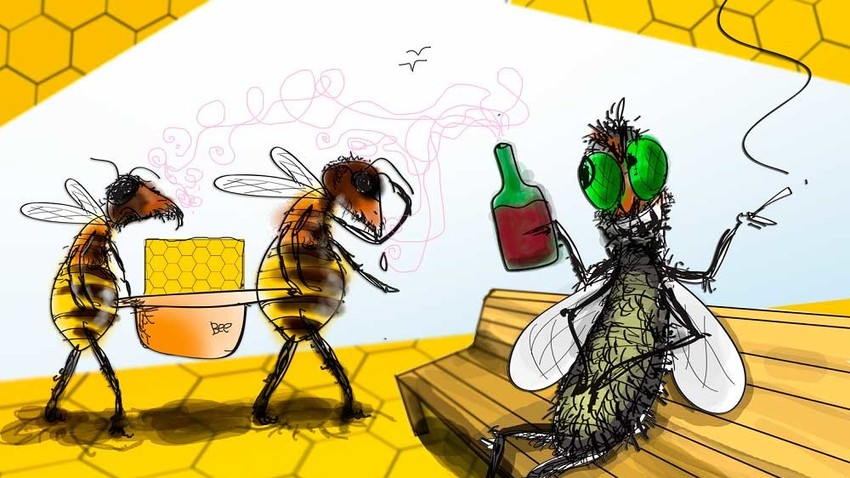
When a human being is compared to an animal, it is usually their less attractive qualities that are highlighted by the comparison. Out of all domestic cattle, it is only the bull that has a positive connotation: healthy as a bull, you could say of a man of robust health. At the same time, if a woman is compared to a cow, the only simile is fat as a cow.
The pig is a symbol of uncleanliness. When you say in Russian dirty as a pig, you stress physical uncleanliness, whereas if you call somebody a swine, you mean that the person has done something morally reprehensible. When a person has done something mean, you can
When a person is compared to a ram (especially in the expression to stare at a new gate like a ram, meaning to look completely lost), the implication is that they are not very clever. When a woman is compared to a sheep, she is, well, sheepish and easily frightened.
Comparisons to fowl are not particularly flattering either: for an arrogant person, it could be said that they are puffed up like a
Horses symbolize hard work, and it is often said of workaholics that they are plowing like a horse. Intriguingly, a technical word that is used to describe gray horses (сивый) forms part of expressions to “lie like a gray gelding,” meaning to say blatant lies, and “ravings of a gray mare,” meaning utter nonsense.
A comparison to a dog can be both negative (angry like a dog) and positive (loyal like a dog). When two members of a family do not get on very well, you could say, they are like a cat and dog together. A mouse is associated with poverty, hence the expression “poor as a church mouse.”
The main characters in Russian folk tales are the wolf, the fox, the hare and the bear. The traits they personify in those tales have given birth to the following expressions: hungry as a wolf; crafty like a fox; and cowardly like a hare. Interestingly, fare-dodgers on public transport are popularly known as hares.
As for the bear, who in real life is a dangerous predator, in Russian folk tales, he is usually represented as a clumsy but
Another creature of the animal world that is associated with industry and hard work is the ant, thanks to a classical fable by Ivan Krylov, in which it is juxtaposed with a careless dragonfly. Interestingly, the bee, whose
Comparisons to birds usually have positive connotations: to sing like a nightingale; slender like a swan; wise as an owl; quick as a sparrow; and proud as an eagle. At the same time, some birds are associated with negative traits: “fierce like a vulture” you could say of an aggressive and angry man; she is “prattling like a magpie” you could say of a particularly talkative woman; while a mother who does not take good care of her children is sometimes called a cuckoo.
A person who takes his or her time when doing anything is compared to a tortoise, while somebody who can run very fast is sometimes compared to a swift-footed deer.
The world of fish offers numerous linguistic comparisons too: to be “silent like a fish”; to feel like “fish in water”; like a “fish beating against the ice,” meaning to struggle desperately. An ironic pun – to be silent like a fish against the ice – means to keep mum, even though you may be desperate.
The pike in Russian folklore is a magical fish that could fulfill your every wish, as in the
All rights reserved by Rossiyskaya Gazeta.
Subscribe
to our newsletter!
Get the week's best stories straight to your inbox